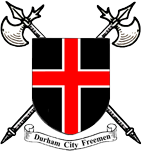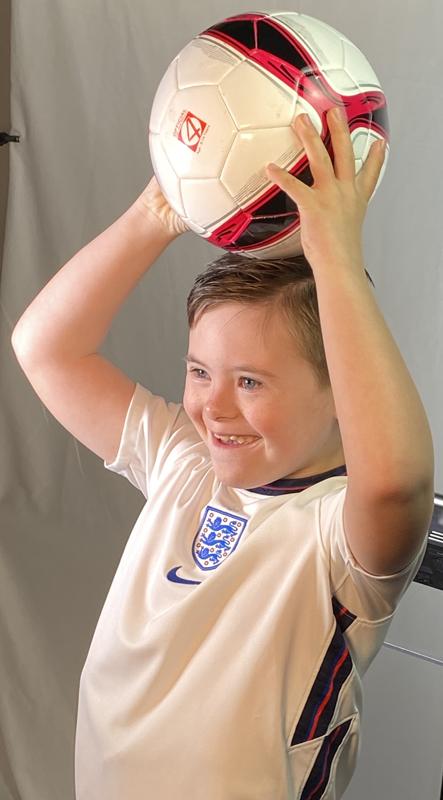29/04/23
Trust Backs Expansion Of Men’s Mental Health Support Groups
Expansion of a specialist organisation providing free male to male peer to peer support for North East men struggling with mental health-related issues, has been handed a £500 boost by Durham City’s Freemen.
ManHealth will use the gift to set up a new group in the Gilesgate Family Hub in the city’s Laurel Avenue and will be launching a further four groups in mid-May in family hubs in Newton Aycliffe, Peterlee, Chester-le-Street and Stanley.
Paul Bannister, who founded ManHealth over seven years ago, said: “Those leading the organisation have themselves ‘walked the walk’ of mental ill health and can offer unconditional help tempered by our own experiences.
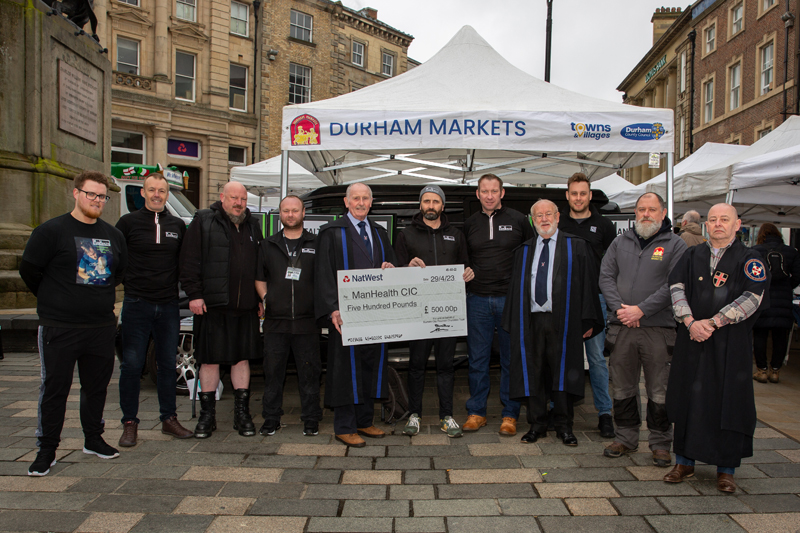
“We cannot fix people’s problems and cannot know what is right for every individual. But we can help in the self-healing process. The model we use encourages each individual to move forward, set new goals and develop relationships that give their lives meaning.
“With an ethos of sharing and education, our groups provide peer-to-peer empathy, an experienced ear and, most importantly, friends who have walked the walk of mental ill health.”
Each group – linked to others stretching into Tyne and Wear and Northumberland - is led by a trained facilitator, supporting between ten and twenty “mates” at any one time.
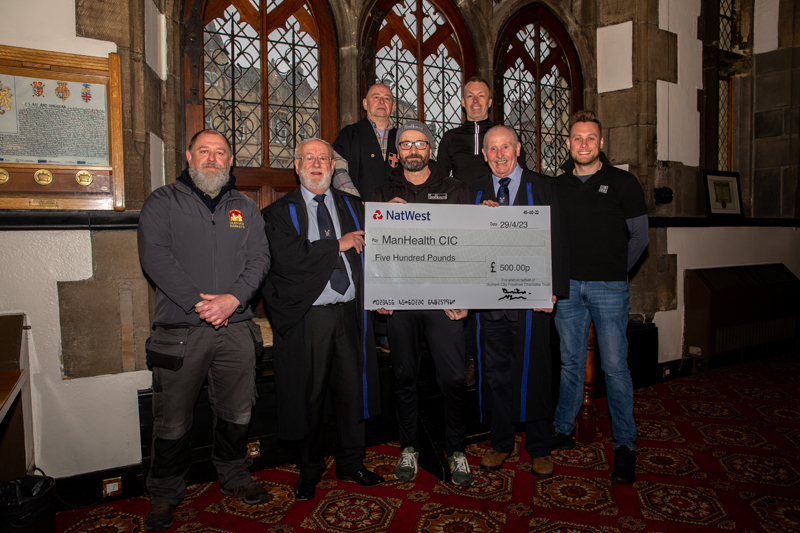
In addition to their financial gift the freemen have also arranged with the Durham Markets Company to make available a market stall in the city centre to publicise the launch of the new County Durham groups and raise awareness of the existing network.
Helping out on the stall with the distribution of information leaflets will be Alan Metcalf, deputy warden of the freemen’s Barbers’ Company. Alan, who is in his 60s, has devoted his spare time over the last few years to supporting ManHealth’s work and acts as a facilitator.
Eric Bulmer, who chairs the freemen’s charitable trust, said: “We are pleased to support Man Health’s valuable work in helping men struggling with mental health issues. It is reassuring members of our local community have a place to turn to during these troubling and stressful times.”
01/04/23
Cash Windfall Helps Spinners Keep Weaving To Save Ancient Skills
A group of Durham enthusiasts, whose mission launched more than forty years ago to promote and preserve centuries-old spinning, weaving and dyeing skills, has been handed a financial boost by the city’s freemen.
Often working with hand-held spindles to duplicate methods pioneered by long-lost civilisations, the group has succeeded in creating a high quality range of artefacts - including ornate tapestries, rugs, jackets, waistcoats, scarves, handbags, matching purses and table mats – which have won national recognition.
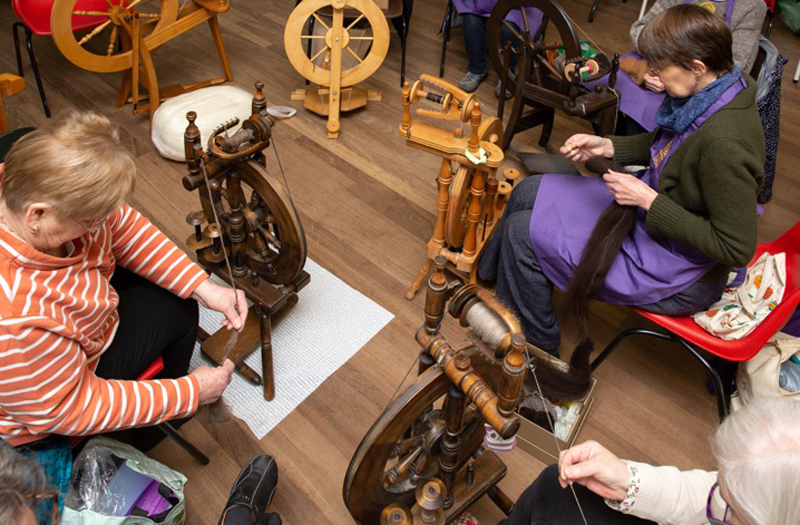
Mrs Ann Evans, who still lives in Durham is one of the original band of five friends who founded the Durham Guild of Spinners, Weavers and Dyers and is proud to salute the continued success of the current three-dozen strong team.
“From those early beginnings we have produced some quite fantastic things and displayed our wares country-wide, including an exhibition of work in the cathedral’s Galilee Chapel which included woven braids. At the annual exhibition of the National Association of Guilds of Weavers, Spinners and Dyers in Leigh last summer the work of four of our members was on display,” said 88-year-old Ann.
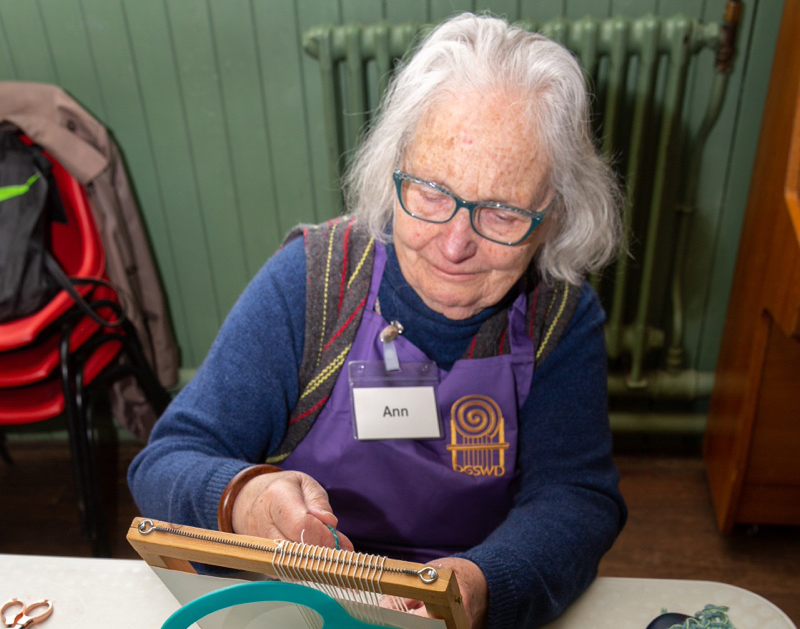
It all started with a weekend tapestry weaving course at the DLI Museum in 1979 and then moved on to weekly WEA evening classes in the city. From there they continued to cultivate their interest by hiring a teacher to lead their weekly meetings and for a time, were supported by a professional tapestry weaver from Wales and enjoyed visits by other experts.
The chairman of the guild, Mrs Diana Barclay, said: “The guild objectives are the promotion of public interest and education in the crafts of hand spinning and weaving and related textile crafts, alongside the development of techniques and equipment for the furtherance of our textile crafts. We are grateful to the city freemen for their generous £300 grant which will help realise our objectives”
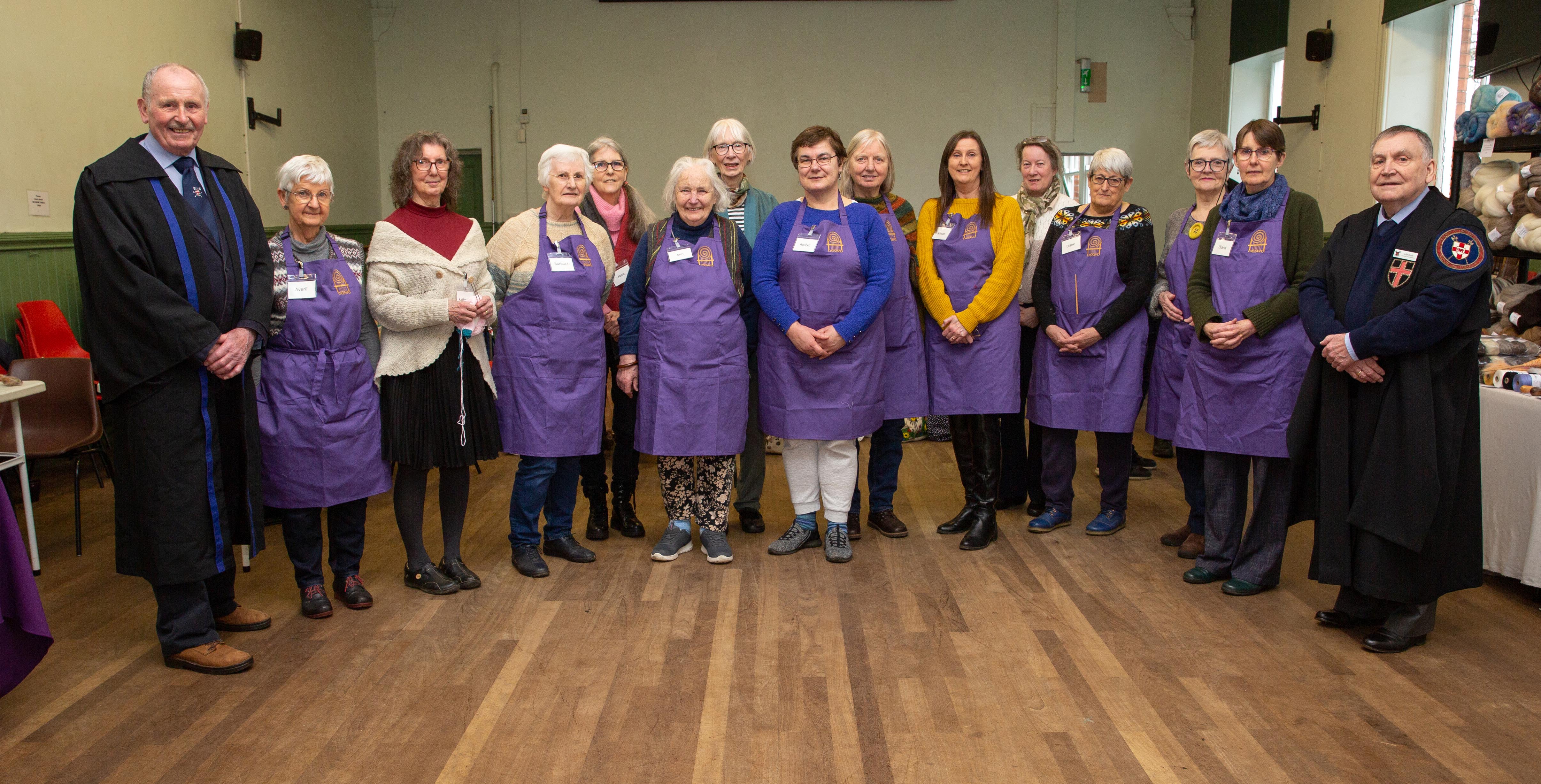
27/03/23
Freemen's Beacon
A stunning steel beacon, sited on high ground above Durham City to commemorate the reign of her late Majesty, Queen Elizabeth 11, was formally handed over as a gift to the city and test fired in situ for the first time on March 27 – just weeks ahead of the King’s Coronation.The towering structure, nineteen feet tall and weighing half a tonne was commissioned and funded by Durham City’s Freemen Charitable Trust. It has been designed and created by Brian Russell, one of the country’s top artistic blacksmiths at his 200-year-old Teesdale forge.
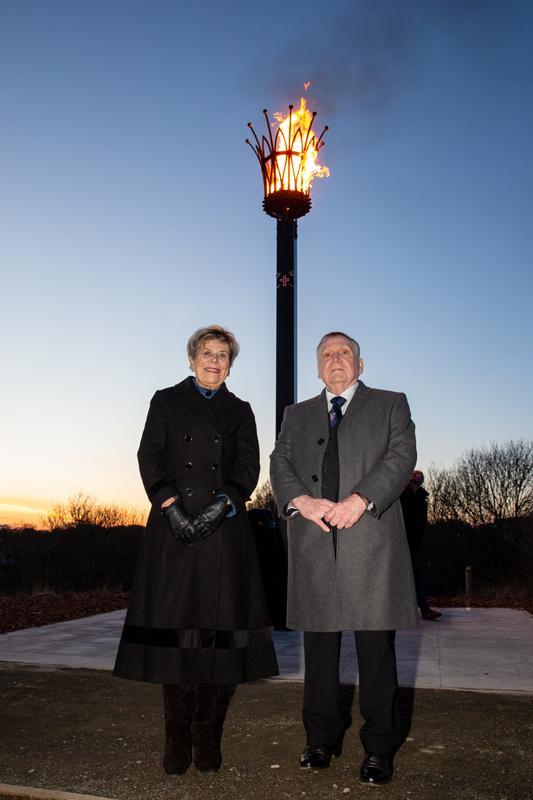
The freemen’s gift is the centrepiece of a wider county council supported project of improved footpaths and public access to the immediate area around the site of the beacon on Jubilee Hill, adjacent to the DLI Museum.
01/03/23
Freemen-Backed Book Project Launched By Crime TV Writer
A pioneering five-year project, launched to raise a wider public acceptance and understanding of the region’s Down’s syndrome community, draws to a close with a celebrity book launch.
Crime writer Ann Cleeves, whose novels inspired ITV’s “Vera” and the BBC’s “Shetland” series, will be special guest speaker at a giant tea party in the Delta Marriot Hotel, MetroCentre hosted by Down’s Syndrome North East (DSNE) – a registered charity run entirely by volunteers.
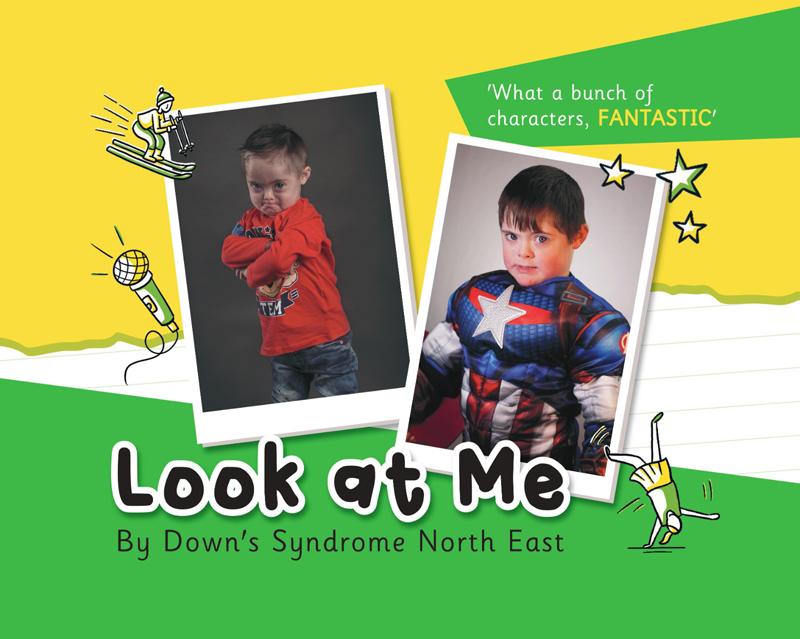
Two thousand copies of the book, entitled “Look at Me,” have been produced with money gifted by a number of organisations and individuals, among them Durham City’s Freemen. More than 1,000 primary, first, middle and special schools across Northumberland, Durham, Tyneside, Wearside and Teesside will be among the first to be given the book. Additionally it will be included in special baby boxes in maternity units across the region to help parents of infants born with the condition.
The ground-breaking project initially got under way in 2017 with an appeal to the DSNE’s 450 members for volunteers to pose not only for portrait photographs but share, in their own words or with the help of family, carers or friends, their dreams, emotions and aspirations for the future.
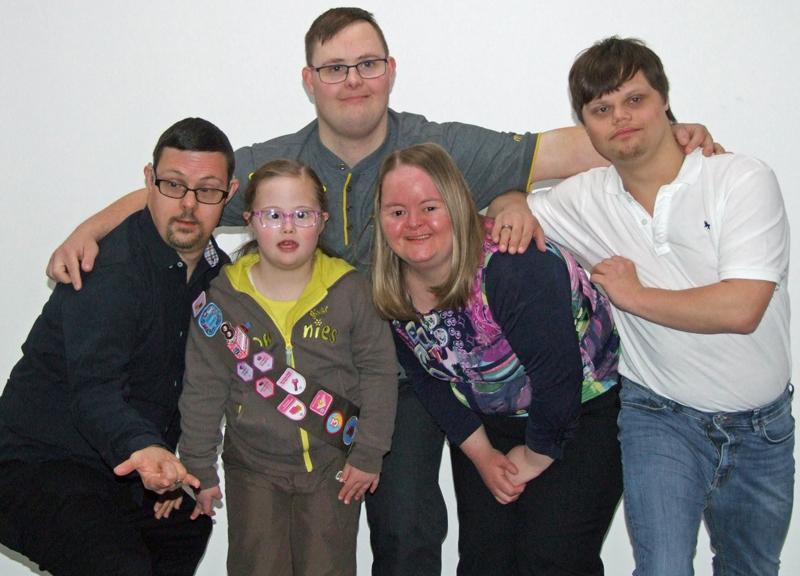
The images of 37 of the volunteers who stepped forward – their ages ranging from a few weeks to their late 30s - featured on thousands of posters and photographs which became the centre piece of a travelling exhibition staged in colleges, town halls and other venues across the region during the intervening years. It has since been seen by many thousands of people and the feed-back, reported by the organisers, has been “fantastic.”
Last summer the original “cast” of 37 had their photographs retaken and their before-and-after images are showcased in the 60-page hard-back publication which underlines just how they have grown and flourished over the intervening years.
|
|
|
“The aim of our exhibition and book project is to help people understand and accept just how unique each person born with Down’s syndrome is. They share the same hopes, emotions and a range of differences as the rest of the population. While some might have hugely complex needs, others are quite able, attending mainstream schools, living in their own homes, having relationships and jobs.
“Just like any other member of the public they want to be treated with respect and consideration. Sadly this is not always the case and while there is evidence of improvement among some in the wider community we frequently hear of upsetting incidents which underline this lack of acceptance and opportunities,” said Mrs Ros Collinson, a DSNE committee member and trustee.
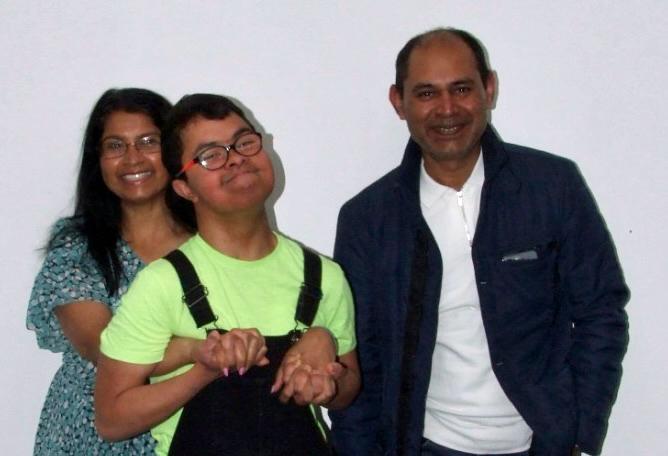
“What we have produced is not a text book and people can take from it what they want. We hope all our work since 2017 will serve to give a lasting insight into the lives of those born with Down’s syndrome and help dispel public misconceptions and stereotyping of a condition that is neither a disease nor an illness that needs to be cured or treated,” she added.
During the course of the project a touring photographic exhibition, supported by many hundreds of posters featuring a range of striking photographic images, toured the region and was seen by thousands. One of the exhibition’s final venues at the end of last year was Ushaw Historic House and Gardens, three miles west of Durham City.
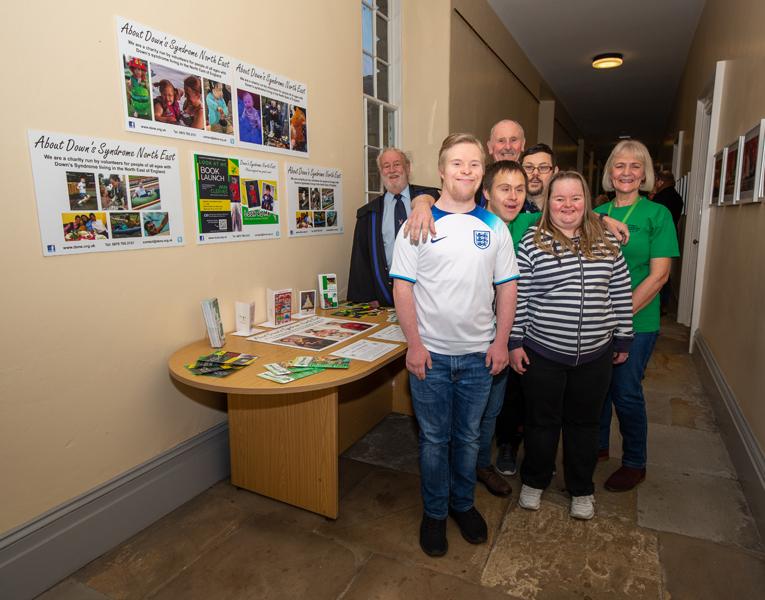
Mrs Collinson said: “Our organisation relies entirely on the generosity of the public and the freemen’s £750 gift has been invaluable in helping us reach the target we set to meet the cost of producing the book.”
12/04/23
If You Care Share Foundation
Our History
Our journey began in 2005. Daniel O’Hare was 19 years of age when, without any warning, he took his own life. He had no previous history of mental health problems nor had he shown any outward signs of his intentions.
Daniel was a normal young man, who was extremely popular and well known in his local community. He had a large amount of friends and a family that loved him dearly. He enjoyed football, spending time with friends and socialising. Daniel also had a job managing a family online retail business. To this day his family remain devastated by their loss and are still no nearer to understanding Daniel’s choice.
Daniel’s brothers Matthew and Ben, along with his cousin Sarah (then aged 10, 5 and 12) hoped to do something positive to try and prevent another family suffering a similar experience. They wanted to create a lasting memory to Daniel and started If U Care Share Foundation.
The family started selling wristbands at football clubs featuring the message if u care share and raised over £50,000 for mental health charities.
In 2011, we became a registered charity with three main aims: Prevention, intervention & support of those bereaved by suicide.
08/06/23
Sowing Skills Cushion The Pain Of Cancer Recovery
Since 2014 the craftswomen, an 18-strong sub-group of the Tursdale and Hett Women’s Institute, “worked below the radar” to manufacture soft fleece kidney-shaped cushions, known as “Breast Buddies.”
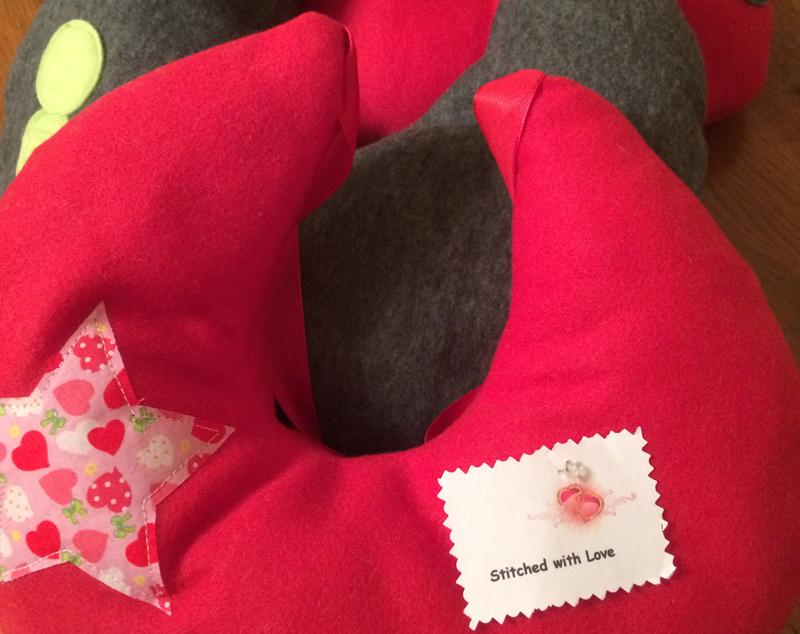
The cushions, which give recovering mastectomy patients support, particularly when sitting, sleeping and driving, are distributed free at local Macmillan Information centres at hospitals in Durham City, Darlington, Bishop Auckland and Shotley Bridge or by breast care nurses.
In the early days the WI sowing team’s basic material needs were met by local firms happy to help. But the supply line was hit by the Covid pandemic, with many benefactors going out of business.
More lately the group has been able to gather fabric, thread and other essential material from a variety of sources – but they needed a cash boost to buy essential material, including the commercially produced stuffing to go inside the cushions. When the freemen’s charitable trust learned of their plight they stepped forward with a gift of £300.
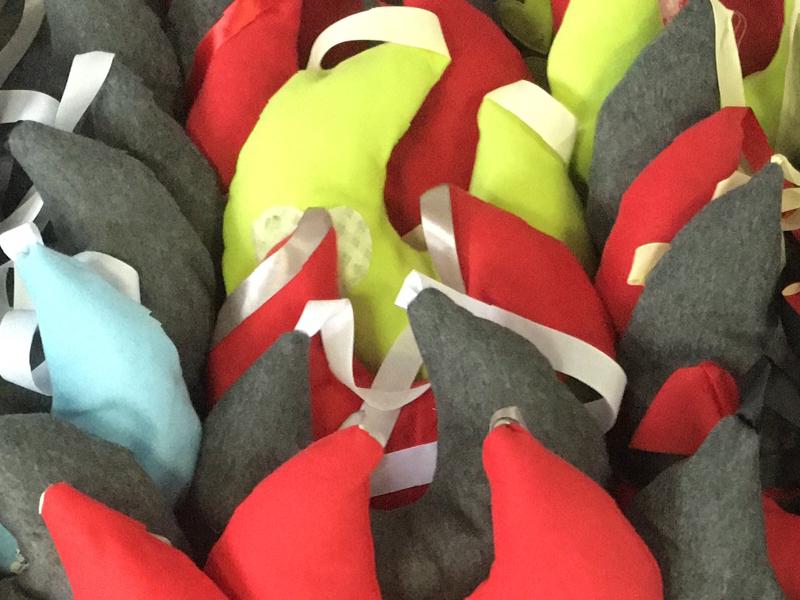
WI president Sheila Swainston first saw the Breast Buddies at the Darlington Macmillan Information Centre where they were made by one of the volunteers and the Darlington Quilters.
“I knew my friends in our local WI would relish the opportunity to get involved in the project. The feedback we have received has been tremendous, with some very moving stories,” said Mrs Swainston.
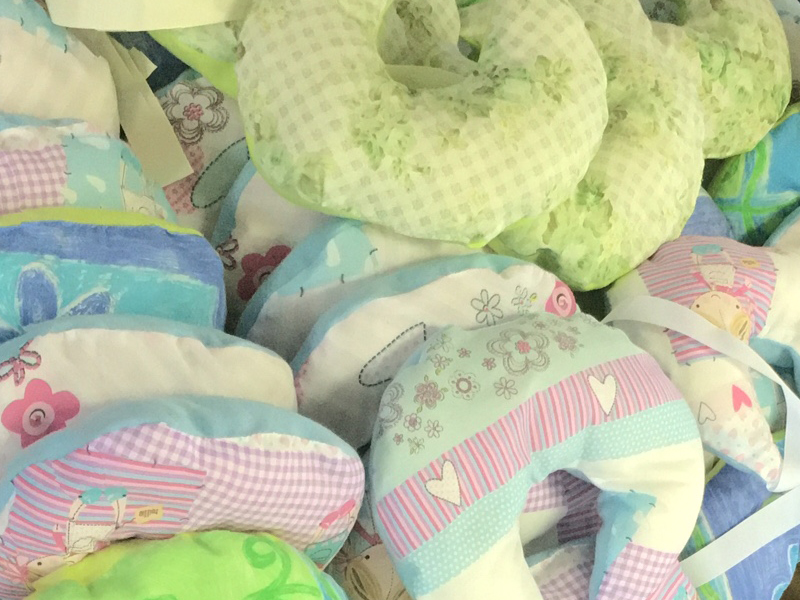
“We would particularly like to thank Alan Ribchester for his support in securing the freemen’s donation and the Hett Village Hall Association for allowing us to use the premises free of charge. At our last session more than 100 cushions were completed, bringing the total to over 1,000. It was a great day with lots of sewing, stitching, stuffing, gossip and cake!” she added.
